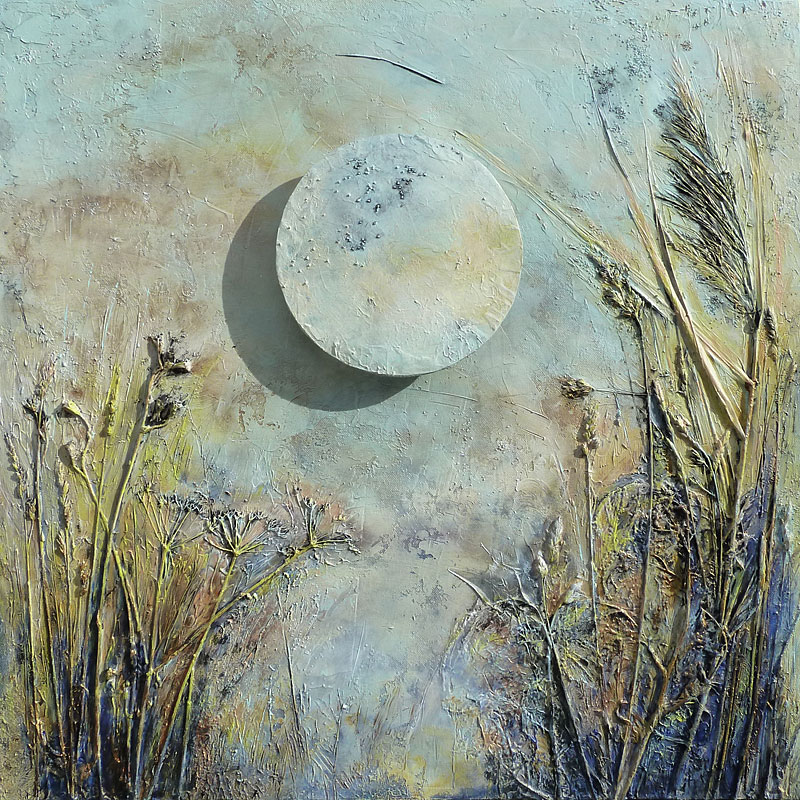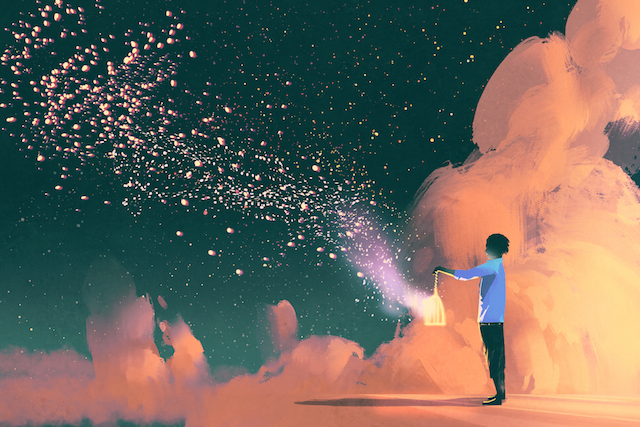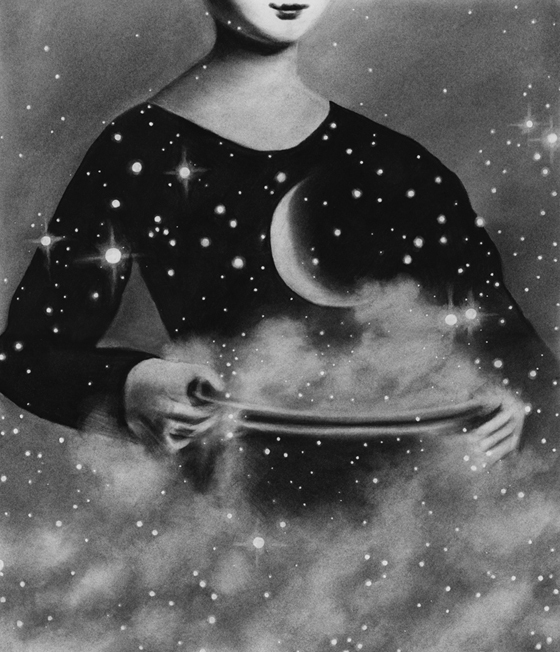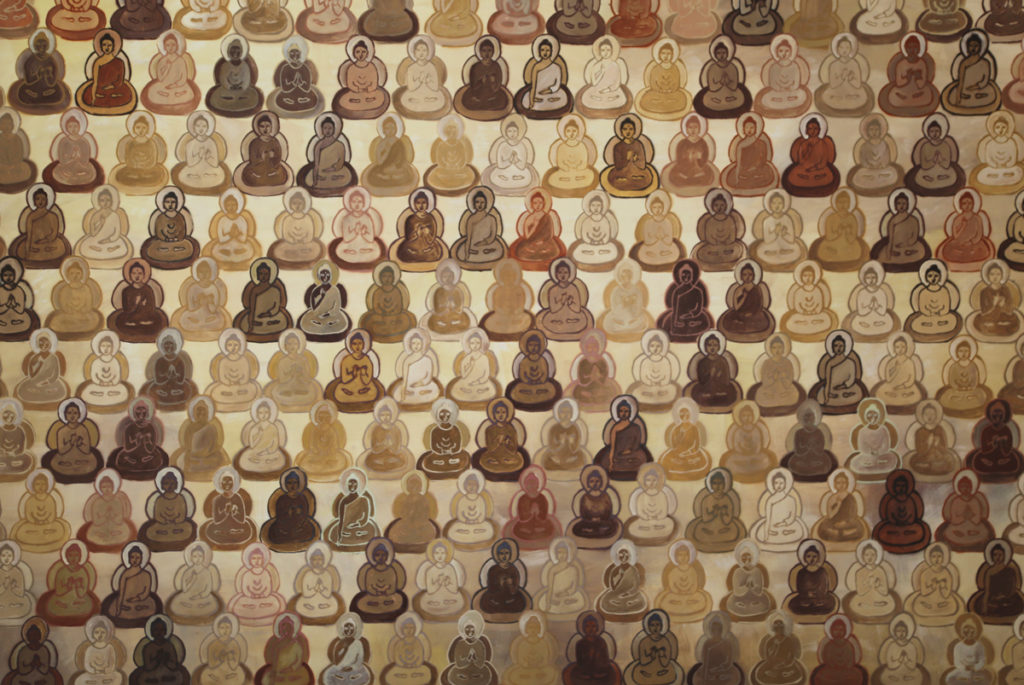Bring to Light the Mind Jewel

I’m really getting into the Flower Ornament Sutra — which I’ve decided requires reading out loud. I love the sound of all the types of beings — and their amazing names(!) — which the text describes as attending on the Buddha at the moment of his awakening. Here’s a sample:
“There were great enlightening beings numerous as the atoms in the ten buddha-worlds surrounding him. Their names were: Universally Good, Light of the Supreme Lamp of Universal Virtue, Lion Banner of Universal Light, Subtle Light of Flames of Universal Jewels, Banner of Oceans of Qualities of Universal Sounds, Realms of Enlightenment of Radiance of Universal Knowledge, Banner of Flower of a Topknot of Universal Jewels, Pleasing Voice of Universal Awareness, Light of Inexhaustible Virtue of Universal Purity, Mark of Universal Light, Great Brilliance of the Light of the Moon Reflected in the Ocean, Undefiled Treasury of Light of Oceans of Cloudlike Sounds, Born of Wisdom and Adorned with Virtue, Great Light of Sovereign Virtue, Brave Lotus Topknot, Sun Banner of Clouds of Universal Knowledge, Greatly Persevering with Indestructible Courage, Light Banner of Fragrant Flames, Deep Beautiful Sound of Great Enlightened Virtue, Born of Wisdom with the Light of Great Virtue. These and others were the leaders–there were as many as there are atoms in the ten buddha-worlds.”
It goes on from there to list the names of thunderbolt-bearing spirits (Pure Sound of Clouds, being one of my favorites), footstep-following spirits (Joyfully Uttering Sublime Sounds), sanctuary spirits (Wonderful Eyes Raining Flowers), city spirits (Flame Banner Clearly Showing), earth spirits (Fragrant Hair Emitting Light), mountain spirits (Awesome Light Conquering All), forest spirits (Bearing Branches Emitting Radiance), herb spirits (Energy-Augmenting Clear Eyes), crop spirits (Gentle Superb Flavor), river spirits (Roaring Everywhere), ocean spirits (Beautiful Flower Dragon Topknot), water spirits (Freedom of Contentment), fire spirits (Light Destroying the Darkness), wind spirits (Everywhere Manifesting Courageous Action), space spirits (Traveling Everywhere Deeply and Extensively), direction spirits (Forever Ending Confusion), night spirits (Observing the World with Joyful Eyes), day spirits (Exquisite Light of Fragrant Flowers), and more!!!
I can see the full moon from my window right now, so I’m feeling particularly drawn to the names on this list:
“There were also innumerable moon deities, led by such as Moon Godling, Flower King Topknot Halo, Myriad Sublime Pure Lights, Pacifying the Hearts of the World, Luminosity of Tree King Eyes, Manifesting Pure Light, Immutable Light Traveling Everywhere, Sovereign Monarch of Constellations, Moon of Pure Awareness, Great Majestic Light.”
They were present because of their service to the Buddha: “All strived to bring to light the mind-jewel of living beings.” Which I am feeling very grateful for tonight.
Same, But Different
In the Study and Practice class I’ll be teaching next month on the Satipatthana Sutta, I’ll use Bhikkhu Sujato’s relatively new translation of this foundational text as well as the more familiar translations by Bhikkhu Bodhi, Bhikkhu Analayo, Thanissaro Bhikkhu, and others.
I like them all. Of course, they each have their pluses and minuses — but I do like the relative plain-spoken-ness of this new one, plus the fact that it uses of non-gendered pronouns.
Here’s Bhikkhu Bodhi’s familiar translation of the opening section of the sutta (MN10), which he titles “The Foundations of Mindfulness“:
Thus have I heard. On one occasion the Blessed One was living in the Kuru country where there was a town of the Kurus named Kammāsadhamma. There he addressed the bhikkhus thus: “Bhikkhus.”—“Venerable sir,” they replied. The Blessed One said this:
“Bhikkhus, this is the direct path for the purification of beings, for the surmounting of sorrow and lamentation, for the disappearance of pain and grief, for the attainment of the true way, for the realization of Nibbāna—namely, the four foundations of mindfulness.
“What are the four? Here, bhikkhus, a bhikkhu abides contemplating the body as a body, ardent, fully aware, and mindful, having put away covetousness and grief for the world. He abides contemplating feelings as feelings, ardent, fully aware, and mindful, having put away covetousness and grief for the world. He abides contemplating mind as mind, ardent, fully aware, and mindful, having put away covetousness and grief for the world. He abides contemplating mind-objects as mind-objects, ardent, fully aware, and mindful, having put away covetousness and grief for the world.
Here’s Bhikkhu Sujato’s translation, which he titles “Mindfulness Meditation“:
So I have heard. At one time the Buddha was staying in the land of the Kurus, near the Kuru town named Kammāsadamma. There the Buddha addressed the mendicants: “Mendicants!” “Venerable sir,” they replied. The Buddha said this:
“Mendicants, the four kinds of mindfulness meditation are the path to convergence. They are in order to purify sentient beings, to get past sorrow and crying, to make an end of pain and sadness, to complete the procedure, and to realize extinguishment.
What four? It’s when a mendicant meditates by observing an aspect of the body—keen, aware, and mindful, rid of desire and aversion for the world. They meditate observing an aspect of feelings—keen, aware, and mindful, rid of desire and aversion for the world. They meditate observing an aspect of the mind—keen, aware, and mindful, rid of desire and aversion for the world. They meditate observing an aspect of principles—keen, aware, and mindful, rid of desire and aversion for the world.
***
Click here for the full translation of MN10 by Bhikkhu Bodhi. Click here for the full translation by Bhikkhu Sujato.
Interested in taking the class? Email me here.
Know That You Don’t Know
NEW MOON REFLECTION from the Forest Sangha (sent Dec 7, while I was away on retreat)
The Wise
Silence does not denote profundity
if you are ignorant and untrained.
Like one holding scales,
a sage weighs things up,
wholesome and unwholesome,
and comes to know both the inner and outer worlds.
Therefore the sage is called wise.
Dhammapada v. 268-269
“When we are faced with a quandary, when we simply don’t know what to do, it is important that we actually know that we don’t know what to do.
“This sounds so obvious that it hardly bears mentioning. But if we slow down, if we really look closely at the momentum of our mental activity, how able are we to abide in an open-hearted, clear-headed awareness of the state of ‘not-knowing’?
“Isn’t it the case that for the most part we are caught up in the desire to feel sure? We love feeling certain and tend to push past feelings of uncertainty. Those who have well-developed awareness are able to consider many different aspects of a situation. They don’t merely react to uncertainty out of conditioned preference.”
In The Very Same Place
FULL MOON REFLECTION from the Forest Sangha
Fearlessness
Whoever has cut all that tethers
and found fearlessness,
who is beyond attachments
and defilements,
I recognize as a great being.
— Dhammapada v. 397
“To be able to abide in the state of fearlessness sounds attractive indeed, but how might we reach such an abiding? Fearlessness is to be found in the very same place as that in which we feel fear.
“We do not need others to stop behaving the way that they do; nor do we need to go some place else. We do, however, need to look more deeply into the reality of the fear that we are already experiencing, and to do so can be very frightening. The temptation to turn away from that which frightens us can be strong. This is why the Buddha wanted us to develop our spiritual faculties: mindfulness, sense restraint, and wise reflection.
“When our heart is buoyed up with the wholesome sense of self confidence which arises when the spiritual faculties are well-developed, we won’t be so intimidated by fear; instead we will be interested in what fear has to teach us.”
Freedom from Distress
NEW MOON REFLECTION from the Forest Sangha
No More Distress
There is no tension
for those who have completed their journey
and have become free
from the distress of all binding ties.
— Dhammapada v. 90
“Whatever is happening around us, let’s not forget that the more important journey is that which leads to freedom from all distress. We might be feeling distressed over what we see or hear on the outside, but the greater distress is that which we feel in our hearts.
“Materialist cultures are mostly unaware of the spiritual journey and mostly invest is acquiring more things and more experiences. The Buddha wants us to invest in training our attention so we learn to recognize the true causes of distress and acquire the skill of letting go.”
Bring Light
FULL MOON REFLECTION from Forest Sangha:
Transformation
One who transforms old and heedless ways
into fresh and wholesome acts
brings light into the world
like the moon freed from clouds.
— Dhammapada v. 173
“It would be a great pity if we viewed all our ‘old and heedless ways’ merely as troublesome tendencies that we had to get rid of. Just as recycling of material objects is sensibly recognized as more skilful than casually throwing things away, likewise a lot of wisdom and goodness can be found in that which previously caused us to suffer.
“Arrogance is always offensive, but once purified and no longer held as who and what we are, can be transformed into self-confidence.
“Stubbornness is always unattractive, but once purified and not seen as ‘self’, can manifest as resolute determination.”
Truly Good Fortune and Gain
I’ve been reading the suttas — one a day — for about six years now…I’m almost done!!!..and came across this one today:
“…you should recollect your own generosity thus: ‘It is truly my good fortune and gain that in a population obsessed by the stain of miserliness, I dwell at home with a mind devoid of the stain of miserliness, freely generous, openhanded, delighting in relinquishment, devoted to charity, delighting in giving and sharing.’
“When a noble disciple recollects her generosity, on that occasion her mind is not obsessed by lust, hatred, or delusion; on that occasion her mind is simply straight, based on generosity.
“A noble disciple whose mind is straight gains inspiration in the meaning, gains inspiration in the Dhamma, gains joy connected with the Dhamma.
“When she is joyful, rapture arises. For one with a rapturous mind, the body becomes tranquil. One tranquil in body feels pleasure. For one feeling pleasure, the mind becomes concentrated.
“This is called a noble disciple who dwells in balance amid an unbalanced population, who dwells unafflicted amid an afflicted population.
“…you should develop this recollection of generosity while walking, standing, sitting, and lying down. You should develop it while engaged in work and while living at home in a house full of children.“
***
An excellent suggestion! And it says the same for “recollecting one’s own virtuous behavior.” Ditto.
(from The Numerical Discourses of the Buddha, in The Book of the Elevens, translation by Bhikkhu Bodhi, with gendered pronoun change by me. AN 11:11.10, 11:12.7)
Do Not Ignore…
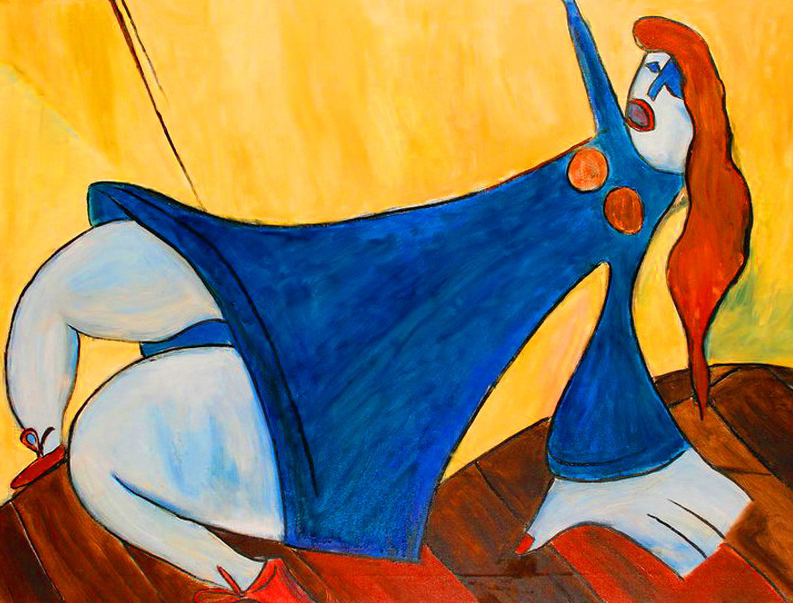 Note: The following was previously published as a Full Moon Reflection by the Forest Sangha on August 26:
Note: The following was previously published as a Full Moon Reflection by the Forest Sangha on August 26:
Do not ignore the effects of evil,
saying, “This will come to nothing”.
Just as by the gradual fall of raindrops
the water jar is filled,
so in time fools are corrupted by evil-doing.(Dhammapada v. 121)
“It is wise to remind ourselves that we usually don’t see how habits are formed. Perhaps we think that it doesn’t matter when we turn a blind eye to somebody else’s unethical conduct. But after a few times of choosing to ‘not notice’ what’s going on, we can find that we have grown used to such conduct – we’ve become somewhat insensitive.
“A more skilful approach is to fully register how witnessing abuse or corruption affects us, in the whole body-mind, and to study our reactions. It is appropriate to feel averse towards that which is improper; aversion only turns into hatred when we cling to it, when we identify with it.
“Hatred is always to be avoided and never to be acted upon, but let’s not be so afraid of it that we become blind. We must protect our sensitivity, feel fully what we feel, and learn to not ‘become’ those feelings.”
That Larger Reality
 Here is this month’s
Here is this month’s
Full Moon Reflection,
offered by the
Forest Sangha:
It is wisdom
that enables letting go
of a lesser happiness
in pursuit of a happiness
which is greater.
(Dhammapada v. 290)
“There is no denying that happiness can be found in the realm of the senses. However, the Buddha discovered that a more dependable and lasting happiness can be found within cultivated awareness. So long as awareness remains uncultivated, generally we won’t see beyond the happiness that comes with gratifying sense desires.
“When awareness is cultivated, then we see the limitations inherent in such pursuits and come to know the happiness of contentment. Being continually caught up in desire is actually painful, but we can only see this once we have some perspective on the true nature of desire.
“Desire is a movement taking place in a larger reality. Appreciation of that larger reality is an expression of wisdom.”
***
I know from my own experience that “a more dependable and lasting happiness” CAN be found in cultivated awareness, so of course that line stood out for me. But the part that REALLY stood out was the reference to the “larger reality” in which desire is just a “movement taking place”.
So my practice for today will be to really let that land in me and to feel its resonance.
***
View earlier Dhammapada Reflections here.
Full and New Moon Reflections
 A shout-out today for my friend Betsy who turned me on to this beautiful offering from the Forest Sangha: Reflections on the Dhammmapada, which (if you subscribe) will arise in your email on each new and full moon.
A shout-out today for my friend Betsy who turned me on to this beautiful offering from the Forest Sangha: Reflections on the Dhammmapada, which (if you subscribe) will arise in your email on each new and full moon.
Here is yesterday’s
New Moon Reflection:
No More Thorns
If you walk the path
you will arrive at the end of suffering.
Having beheld this myself,
I proclaim the Way
which removes all thorns.
— Dhammapada v. 275
(from A Dhammapada for Contemplation, 2nd edition, Aruna Publications, 2006)
“It is not necessary to move through life perpetually afraid of being skewered by the barbs of painful human interaction. All beings, including the Buddha himself, are subject to the eight worldly winds: praise and blame, gain and loss, pleasure and pain, honor and insignificance.
“However, awakened beings are so completely transparent, so completely free from resistance, that they are always able to accord with it. They live unobstructed in their relationship with everything and everybody. Having walked the path to its end, they know beyond all doubt that to cling is to suffer. Wisdom shows them how to hold to life without creating pain, without spoiling it.”
***
The Forest Sangha represents the
International Monasteries in the Therevada Buddhist Tradition of Ajahn Chah.
To receive these fortnightly Reflections, click here.
To view earlier Reflections, click here.


